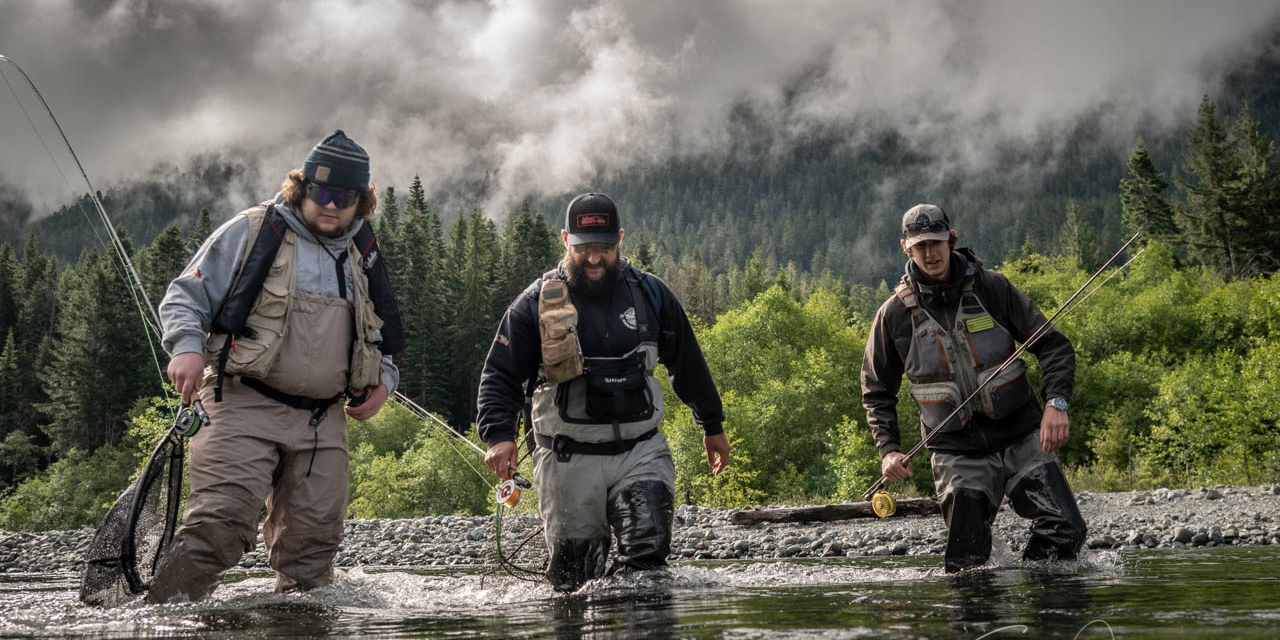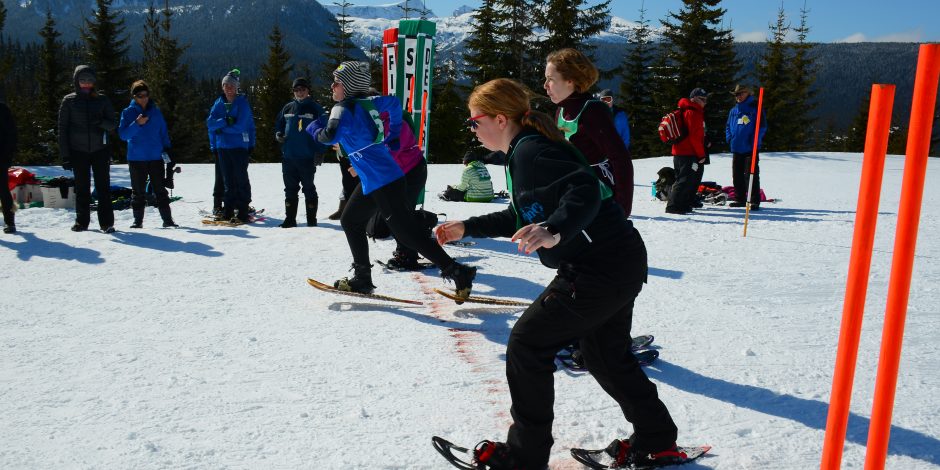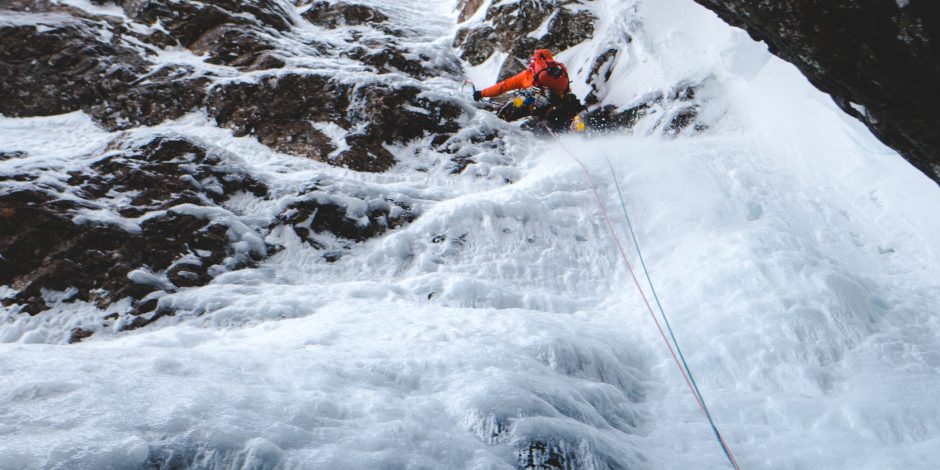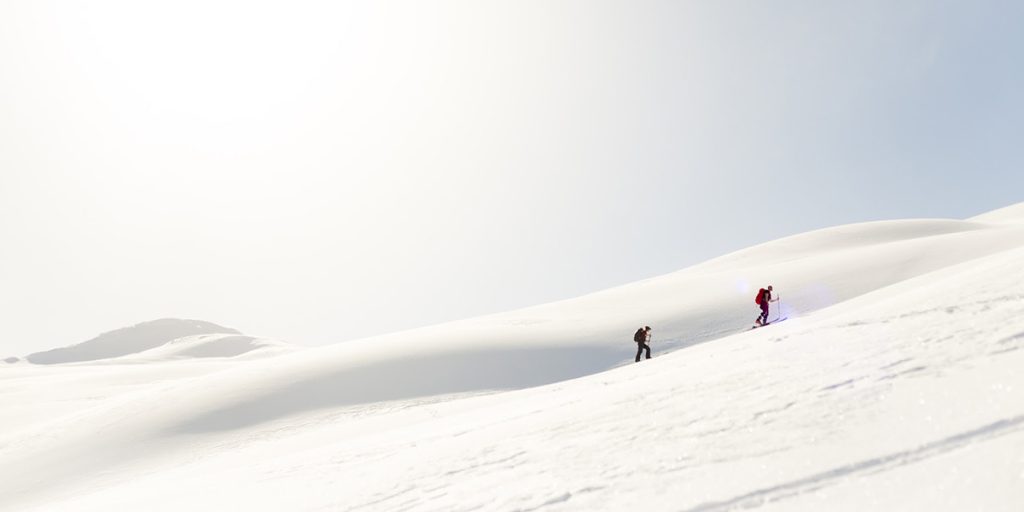I wade into the Campbell River, fly rod in hand. The cold snap of the morning breeze matches the fall temperature. I pull out a hand-tied egg pattern while clenching my fly box as I stand in the river. I cast the fly rod, building momentum of the teal-coloured fly line. The tight loops passing overhead launch the fly line outward, placing it into a seam of slow-moving water. It sinks, as intended. The blue-steel water drifts my artificial creation into a small school of chrome flashes. My rod slams downward, and my hands tighten the grip. The tight line and bouncing rod tip widen my eyes. I set the hook. A surge of adrenaline washes over me. In moments, I net the salmon, holding it carefully as I kneel in the water. I gently admire it, cradling it in front of me, as though I were greeting a new friend. The salmon’s scales gleam from its nares to its caudal fin. I release the fish, fully content, yet eager to meet another.
The genesis of Carihi Fly Fishing came soon after this fleeting moment. I wondered if it were possible to bridge my passion for the sport of fly fishing to high school in some way. After some pondering, I brainstormed what a fly-fishing course could look like, both curricular and experiential-wise for students. I then ran the idea by the principal of Carihi at the time, who agreed to allow an after-school fly tying club but was not yet convinced to offer a class. With a great deal of help from the community’s local businesses and organizations, the program began to take shape. Gratuity goes to our main sponsors, including Mowi, Campbell River Salmon Foundation, Cabelas, Campbell River Fish and Wildlife Association, Island Ready Mix, McDonald’s, Loop Fly Fishing, Tyee Marine, and River Sportsman. Carihi Fly Fishing sprouted from a seed into a successful multi-subject offering at the school with help from our local community. It took two years of consistency in having students show up after school to the fly-tying club before the principal took a chance on offering an elective course. The class morphed and shaped itself over six years from an elective offering to an academic dual-credit program, where students now receive both an English and a Science credit towards their graduation. The course is multigrade and includes students in Grades 10-12.
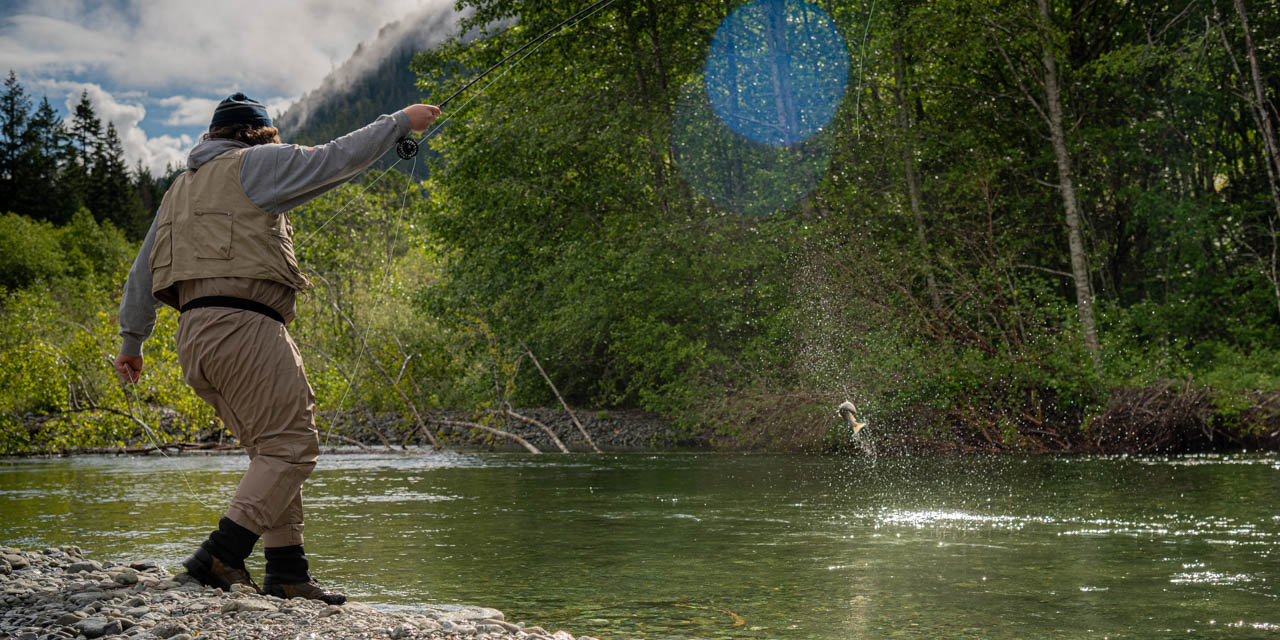
Today, when a student signs up for the course, they have the choice of selecting from a salmon or trout focus. The salmon course is offered in the fall when the salmon are running in the rivers. The trout course focuses on the pursuit of steelhead and wild trout during the spring months. Both courses prompt students to develop their literacy skills in reading, writing, thinking, and speaking. Further, they are taught how to write a variety of essay styles, read pertinent literature and novels, and demonstrate their
understanding of learning concepts in innovative ways. They analyze fly-fishing literature insofar as studying the texts from writers and conservationists like Roderick Haig-Brown, Van Egan, and writers from The Gilly. While enrolled, students study and develop an understanding of the importance of conservation and stewardship, and eagerly participate in garbage clean-up and salmon enhancement activities throughout the semester.
I weave literacy skills with fly-fishing skills through a lens of conservation. A typical semester in either course, trout or salmon, has students learning how to cast fly line, tie flies and knots, and read water. They study entomology, and learn fish anatomy, ecosystems, and trip preparation. A great deal of time is also spent training the students in safety, and what fishing etiquette may look like while on the river.
Throughout the semester, I invite community members—including Conservation Officers, Department of Fisheries workers, fly-fishing guides, and local fly tyers—to come and share their knowledge and understanding with the students. Having the community connected to the program authenticates the fly-fishing experience for the students and allows them to tap into knowledge from others, not just me.
Chris Moller, a member of the Campbell River Fish and Wildlife Association and guest fly tyer, shared his thoughts on the program since his involvement years ago:
“It has been a pleasure to be involved with the Carihi Fly Fishing Program. It has been gratifying to see the students engaged in all aspects of the sport: from the history, lore, and sportsmanship, to ecology, entomology, marine science, and stewardship of the land. They are developing an appreciation for their surroundings and a strong sense of responsibility. Mr. Pisterzi has done a terrific job putting this course together and keeping his students engaged in such a worthwhile activity. It has taken a lot of dedication and tenacity to get the course started and to keep it going. It would be great to see the concept spread throughout the School District and even the province.”
Without the support of our community’s contributions, the Carihi Fly Fishing program would still be a seed. Indeed, it has cost tens of thousands of dollars to purchase and maintain enough gear for each student to use over many years. I am thrilled knowing the course has this much support, being that we reside in the “Salmon Capital of the World.” Cecil Henley, like many other community members and fly tyers, has dedicated money to the program in honour of his late wife.
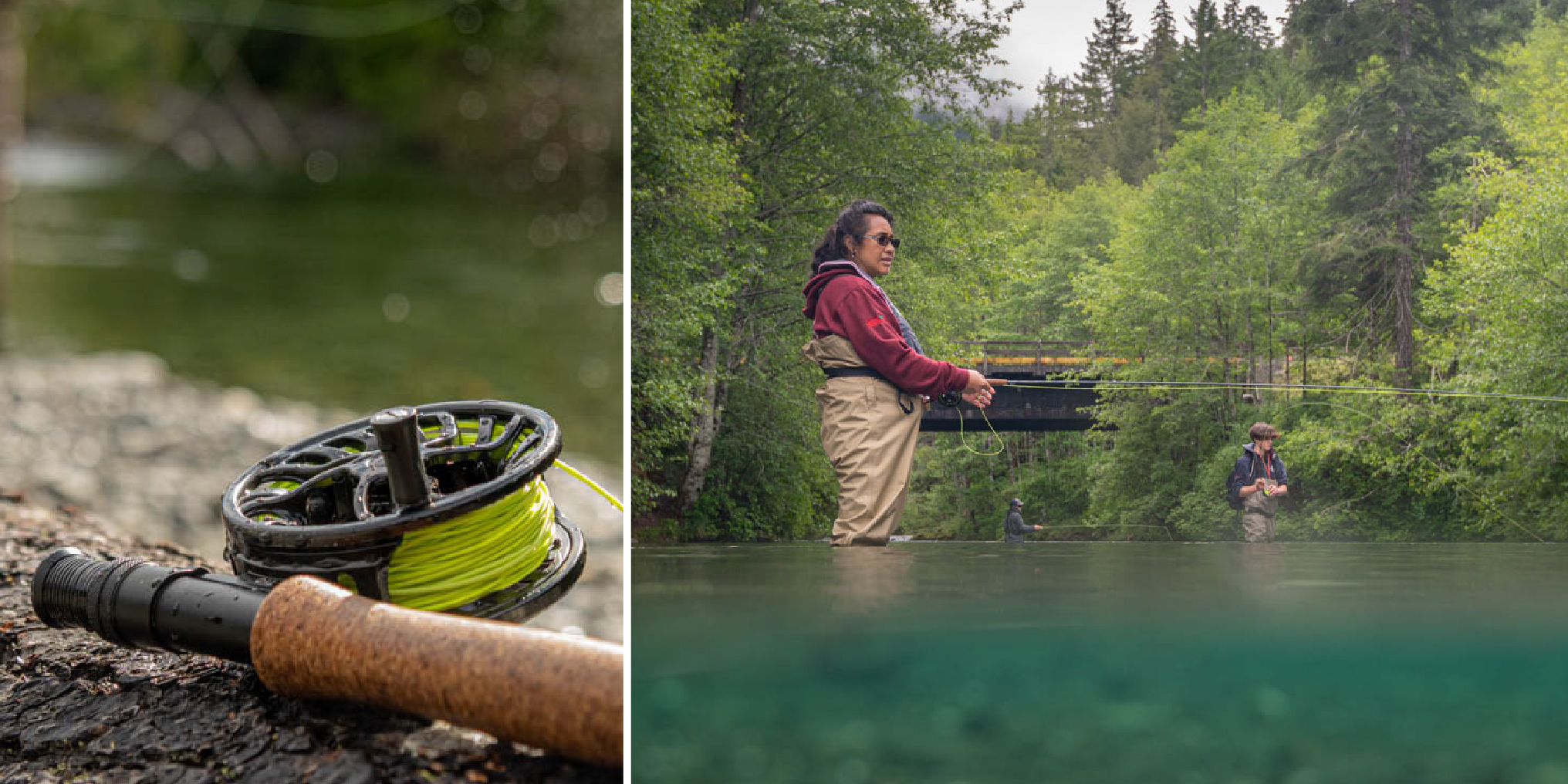
In its sixth year, the annual Helen Henley Memorial Award was created by Cecil for the top overall fly-fishing student. The award is presented yearly to one who demonstrates the most leadership, growth, and passion for the sport. Candidates exhibit kindness and put others first. They are committed to conservation, and display respect and fishing etiquette. Cecil presents $500 to the winning student and tells them there are no strings attached to the money and they should spend it as they please. Doing this in honour of his wife provides him with great comfort because one of her final wishes before she passed was for him to stay connected to Carihi Fly Fishing.
“I cannot express how much I appreciate this program and what it does for kids. I see it as an honour to be a part of such a unique thing. I am happy that I can acknowledge kids who show a deep interest in fly fishing and conservation. It’s an amazing experience for kids to be a part of this, and I am pleased I can continue to honour my wife through this annual award. I am committed to this award as long as the program will run.”
Since the course began, many have tasked themselves with supporting the program. I do my best not to stand in their way, and see dividends pay out. Constructing bookshelves for the wading boots, volunteering on the weekend to clean up estuaries, or reminding others while fishing of the regulations are just a few examples of small acts connected to the magic of it all. There have recently been a few students exhibiting their passion from the class, including one who is currently taking it upon himself to craft fishing nets for the program. With a bit of encouragement and money to cover supplies from the program, he created and tested templates, sharing them with others so they could also craft their own nets. His goal is to
create enough for each student so they can safely land fish when caught and reduce mortality risks when catching and releasing. Clearly, teaching him to value conservation has led him to give back to the course in a unique way.
Another student created a short video entitled Get Reel, which he entered in the Vancouver Island Youth Film Festival this year and won Best Screenplay for his efforts in highlighting Carihi Fly Fishing and his passion for conservation. He developed and created a short masterpiece using his drone and iPhone while on the fishing trips. The video, which he created in his own time, outlines his journey and how important conservation is regarding the protection of resources for future generations.
As I reflect and write on the growth and evolution of Carihi Fly Fishing, I appreciate how fortunate I am to witness their skill development and attitudes towards nature. It is this magic that keeps students coming back and spreading the word to their friends that, when they sign up for the course, they are in for a unique experience. The excitement of battling their
first fish, whether it is a salmon or trout, or the moment where they capture each other with their cameras, holding a majestic fish flaring its gills, is magic that leaves the students speechless, jittery, or swallowed up by a large sense of accomplishment— particularly when they catch fish on flies they tied themselves.
When asking former students on their experience in the class, they had some insightful comments to share. I asked Grade 12 student Thomas Greze-Kozuki what he thought about his time in fly fishing:
“It’s a great opportunity to learn and develop new skills and appreciate the outdoors and what it has to offer.”
Nephelium Bower, a Grade 11 student, recalled a special moment that triggered a new passion:
“After gently releasing my first chum salmon on a fly rod, I knew that fly fishing would forever be a passion of mine.”
Graduating student Seth Bisson reflected on his experience, taking the class multiple times:
“I feel like this class has taught me to open up about myself and rekindle my connection with nature. I’ve learned so much about conservation and proper fish handling while finding a new passion in the process.”
It is this feedback that continues to strengthen me, even when challenges arise. It is my hope to see my students carry on the torch of conservation, as well as share the beauty of the sport with others. It would be such a joy to see those I’m teaching now experiencing the outdoors with their own kids, or even one day, their grandkids, recalling all the important concepts that turned them into a complete angler.

